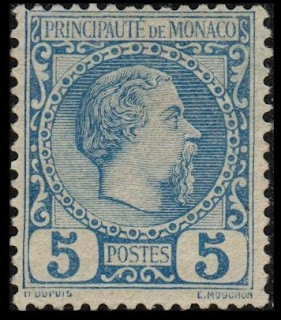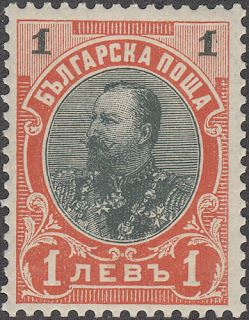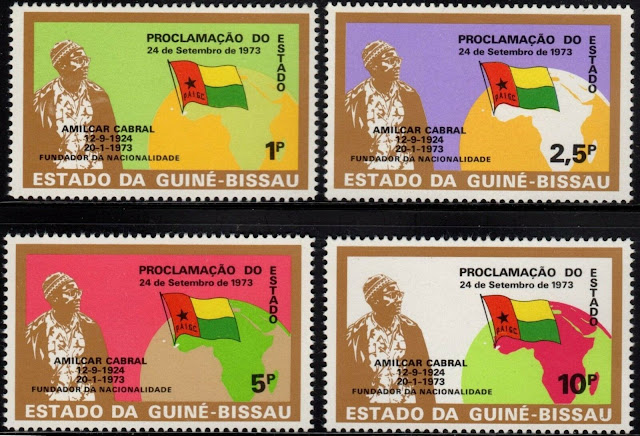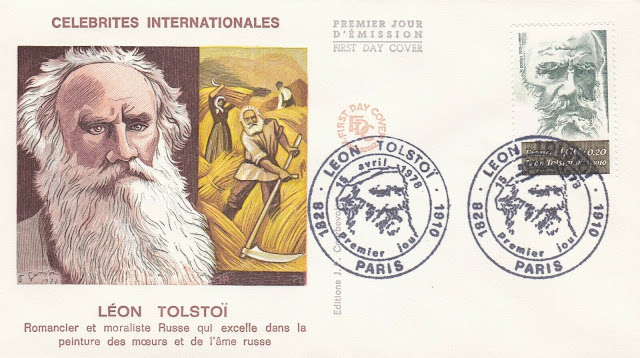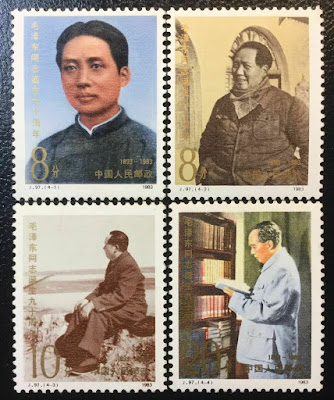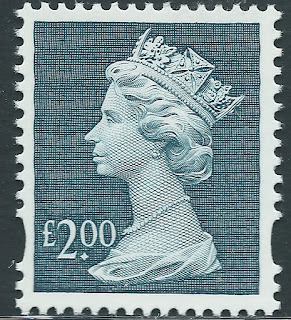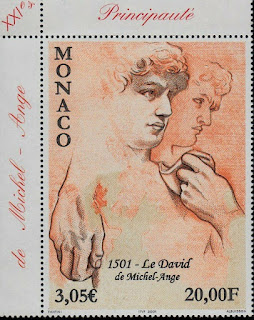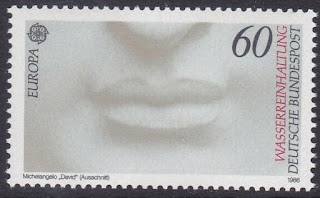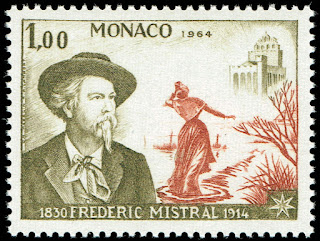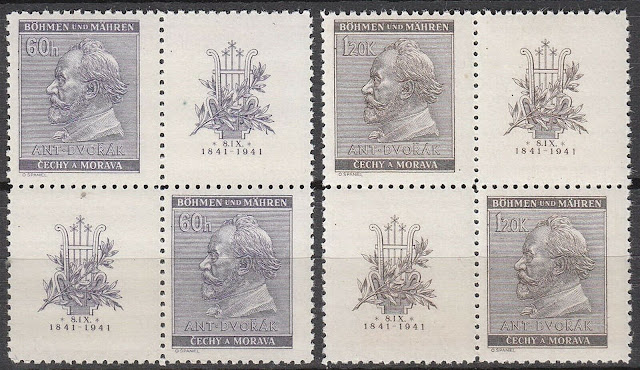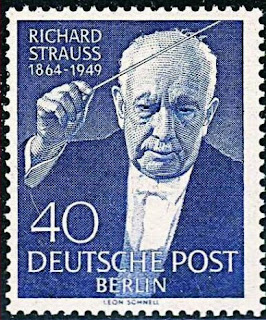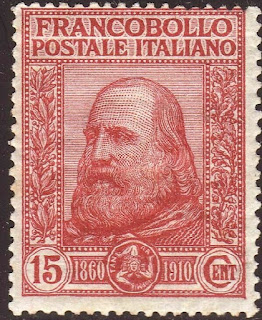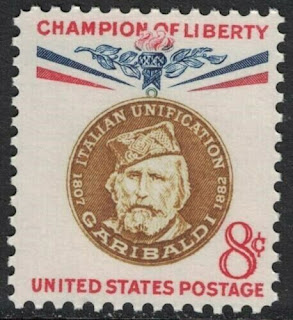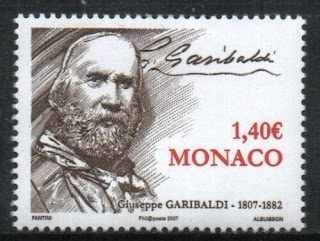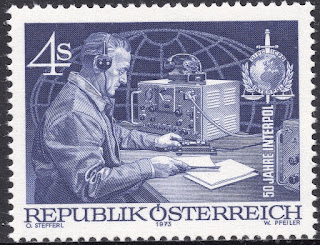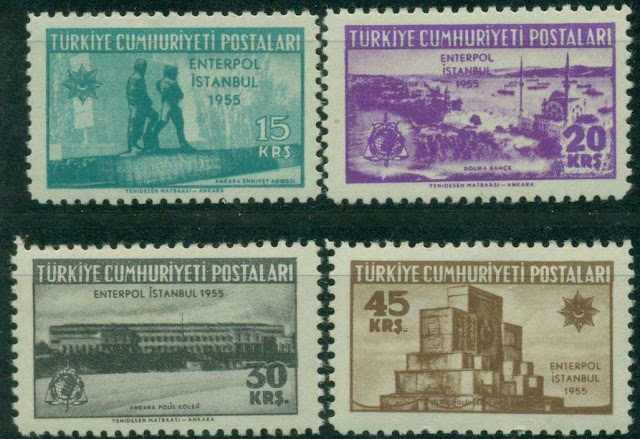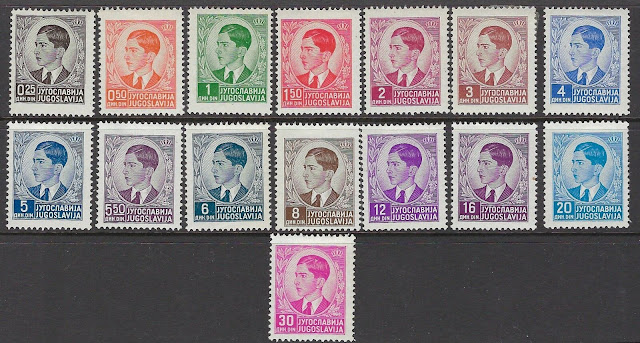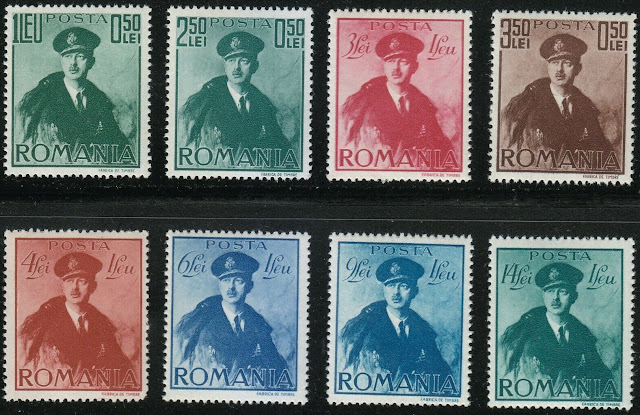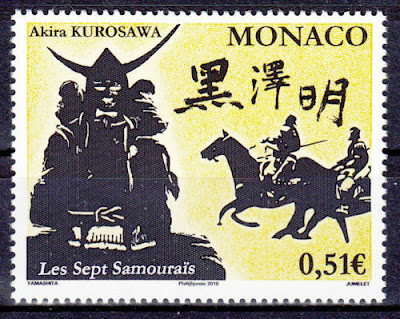Tuesday, September 10, 2019
September 10th in stamps Ferdinand I of Bulgaria, Charles III, Prince of Monaco, Guinea-Bissau
Monday, September 09, 2019
September 9th in stamps Tolstoy, Elizabeth II, Mao Zedong
1828 Born: Leo Tolstoy, Russian author and playwright (d. 1910)
Count Lev Nikolayevich Tolstoy (9 September [O.S. 28 August] 1828 – 20 November [O.S. 7 November] 1910), usually referred to in English as Leo Tolstoy, was a Russian writer who is regarded as one of the greatest authors of all time. He received multiple nominations for Nobel Prize in Literature every year from 1902 to 1906, and nominations for Nobel Peace Prize in 1901, 1902 and 1910, and his miss of the prize is a major Nobel prize controversy.
Born to an aristocratic Russian family in 1828, he is best known for the novels War and Peace (1869) and Anna Karenina (1877), often cited as pinnacles of realist fiction. He first achieved literary acclaim in his twenties with his semi-autobiographical trilogy, Childhood, Boyhood, and Youth (1852–1856), and Sevastopol Sketches (1855), based upon his experiences in the Crimean War. Tolstoy's fiction includes dozens of short stories and several novellas such as The Death of Ivan Ilyich (1886), Family Happiness (1859), and Hadji Murad (1912). He also wrote plays and numerous philosophical essays.
1976 Died: Mao Zedong, Chinese philosopher, academic, and politician, 1st Chairman of the Communist Party of China (b. 1893)
Mao Zedong (December 26, 1893 – September 9, 1976), also known as Chairman Mao, was a Chinese communist revolutionary who became the founding father of the People's Republic of China (PRC), which he ruled as the Chairman of the Communist Party of China from its establishment in 1949 until his death in 1976. Ideologically a Marxist–Leninist, his theories, military strategies, and political policies are collectively known as Maoism.
A controversial figure, Mao is regarded as one of the most important and influential individuals in modern world history. He is also known as a political intellect, theorist, military strategist, poet, and visionary. Supporters credit him with driving imperialism out of China, modernizing the nation and building it into a world power, promoting the status of women, improving education and health care, as well as increasing life expectancy as China's population grew from around 550 million to over 900 million under his leadership. Conversely, his regime has been called autocratic and totalitarian, and condemned for bringing about mass repression and destroying religious and cultural artifacts and sites. It was additionally responsible for vast numbers of deaths with estimates ranging from 30 to 70 million victims through starvation, prison labor and mass executions
2015 – Elizabeth II became the longest reigning monarch of the United Kingdom.
Queen Elizabeth II became the longest-reigning British monarch on 9 September 2015 when she surpassed the reign of her great-great-grandmother Victoria. On 6 February 2017 she became the first British monarch to celebrate a Sapphire Jubilee, commemorating 65 years on the throne.
Elizabeth II (Elizabeth Alexandra Mary Windsor; born 21 April 1926) is Queen of the United Kingdom and the other Commonwealth realms.
Elizabeth was born in London as the first child of the Duke and Duchess of York, later King George VI and Queen Elizabeth, and she was educated privately at home. Her father acceded to the throne on the abdication of his brother King Edward VIII in 1936, from which time she was the heir presumptive. She began to undertake public duties during the Second World War, serving in the Auxiliary Territorial Service. In 1947, she married Prince Philip, Duke of Edinburgh, a former prince of Greece and Denmark, with whom she has four children: Charles, Prince of Wales; Anne, Princess Royal; Prince Andrew, Duke of York; and Prince Edward, Earl of Wessex
Sunday, September 08, 2019
September 8th in stamps Michelangelo David, Dvořák, Strauss, Frédéric Mistral
Here are some events that happened on September 8th. It could be an event or a person that died or was born on that day
1830 Born: Frédéric Mistral, French lexicographer and poet, 1904 Nobel Prize laureate (d. 1914)
Frederic Mistral (Occitan: Josèp Estève Frederic Mistral, 8 September 1830 – 25 March 1914) was a French writer of Occitan literature and lexicographer of the Provençal form of the language. Mistral received the 1904 Nobel Prize in Literature "in recognition of the fresh originality and true inspiration of his poetic production, which faithfully reflects the natural scenery and native spirit of his people, and, in addition, his significant work as a Provençal philologist". He was a founding member of the Félibrige and a member of l'Académie de Marseille.
His name in his native language was Frederi Mistral (Mistrau) according to the Mistralian orthography or Frederic Mistral (or Mistrau) according to the classical orthography.
Mistral's fame was owing in part to Alphonse de Lamartine who sang his praises in the 40th edition of his periodical Cours familier de littérature, following the publication of Mistral's long poem Mirèio. Alphonse Daudet, with whom he maintained a long friendship, eulogized him in "Poet Mistral", one of the stories in his collection Letters from My Windmill (Lettres de mon moulin).
Stamps from France and Monaco depicting Frédéric Mistral
Saturday, September 07, 2019
September 7th in stamps
1707 Born: Georges-Louis Leclerc, Comte de Buffon, French mathematician, cosmologist, and author (d. 1788)
Georges-Louis Leclerc, Comte de Buffon (7 September 1707 – 16 April 1788) was a French naturalist, mathematician, cosmologist, and encyclopédiste.
His works influenced the next two generations of naturalists, including Jean-Baptiste Lamarck and Georges Cuvier. Buffon published thirty-six quarto volumes of his Histoire Naturelle during his lifetime; with additional volumes based on his notes and further research being published in the two decades following his death.
Buffon held the position of intendant (director) at the Jardin du Roi, now called the Jardin des Plantes.
Charles Darwin wrote in his preliminary historical sketch added to the third edition of On the Origin of Species: "Passing over ... Buffon, with whose writings I am not familiar". Then, from the fourth edition onwards, he amended this to say that "the first author who in modern times has treated it [evolution] in a scientific spirit was Buffon. But as his opinions fluctuated greatly at different periods, and as he does not enter on the causes or means of the transformation of species, I need not here enter on details". Buffon's work on degeneration, however, was immensely influential on later scholars but was overshadowed by strong moral overtones.
Some stamps from Ukraine and France depicting Buffon
1860 – Italian unification: Giuseppe Garibaldi enters Naples.
Giuseppe Maria Garibaldi (4 July 1807 – 2 June 1882) was an Italian general and nationalist. A republican, he contributed to the Italian unification and the creation of the Kingdom of Italy. He is considered one of the greatest generals of modern times and one of Italy's "fathers of the fatherland" along with Camillo Benso, Count of Cavour, Victor Emmanuel II of Italy and Giuseppe Mazzini.
Garibaldi is also known as the "Hero of the Two Worlds" because of his military enterprises in Brazil, Uruguay, and Europe.He commanded and fought in many military campaigns that eventually led to the Italian unification. In 1848, the provisional government of Milan made Garibaldi a general, and in 1849, the Minister of War promoted him to General of the Roman Republic to lead the Expedition of the Thousand on behalf and with the consent of Victor Emmanuel II. His last military campaign took place during the Franco-Prussian War, as commander of the Army of the Vosges.
Having conquered Sicily, he crossed the Strait of Messina and marched north. Garibaldi's progress was met with more celebration than resistance, and on 7 September he entered the capital city of Naples, by train. Despite taking Naples, however, he had not to this point defeated the Neapolitan army. Garibaldi's volunteer army of 24,000 was not able to defeat conclusively the reorganized Neapolitan army—about 25,000 men—on 30 September at the battle of Volturno. This was the largest battle he ever fought, but its outcome was effectively decided by the arrival of the Piedmontese Army.
Some stamps from Italy, Monaco and the United States depicting Garibaldi
1923 – The International Criminal Police Organization (INTERPOL) is formed.
The International Criminal Police Organization (ICPO-INTERPOL; French: Organisation internationale de police criminelle), more commonly known as INTERPOL is an international organization that facilitates worldwide police cooperation and crime control. Headquartered in Lyon, France, it was founded in 1923 as the International Criminal Police Commission (ICPC); the name INTERPOL served as the agency's telegraphic address in 1946, and was chosen as its common name in 1956
INTERPOL provides investigative support, expertise, and training to law enforcement worldwide in battling three major areas of transnational crime: terrorism, cybercrime, and organized crime. Its broad mandate covers virtually every kind of crime, including crimes against humanity, child pornography, drug trafficking and production, political corruption, copyright infringement, and white-collar crime. The agency also helps coordinate cooperation among the world's law enforcement institutions through criminal databases and communications networks.
Some stamps from Austria, Monaco, Croatia, Germany, Yugoslavia, Turkey ans Switzerland commemorating Interpol
Friday, September 06, 2019
September 6th in stamps Akira Kurosawa, Max Schreck, Nosferatu, Dracula,Carol II, Peter II, Sully Prudhomme
1879 Born: Max Schreck, German actor (d. 1936)
Friedrich Gustav Maximilian Schreck (6 September 1879 – 20 February 1936), known professionally as Max Schreck, was a German actor, best known for his lead role as the vampire Count Orlok in the film Nosferatu (1922)
Nosferatu: A Symphony of Horror (German: Nosferatu, eine Symphonie des Grauens), or simply Nosferatu, is a 1922 German Expressionist horror film, directed by F. W. Murnau, starring Max Schreck as the vampire Count Orlok. The film, shot in 1921 and released in 1922, was an unauthorized adaptation of Bram Stoker's Dracula (1897); the Stoker Estate had refused permission. Various names and other details were changed from the novel: for instance, vampire became Nosferatu, and Count Dracula became Count Orlok.
Stoker's heirs sued over the adaptation, and a court ruling ordered that all copies of the film be destroyed. However, a few prints of Nosferatu survived, and the film came to be regarded as an influential masterpiece of cinema.
The film was released in the United States on 3 June 1929, seven years after its original premiere in Germany.
Below are 2 Maxicards issued in Spain commemorating Nosferatu
Born in Paris, Prudhomme originally studied to be an engineer, but turned to philosophy and later to poetry; he declared it as his intention to create scientific poetry for modern times. In character sincere and melancholic, he was linked to the Parnassus school, although, at the same time, his work displays characteristics of its own.
His first collection, Stances et Poèmes ("Stanzas and Poems", 1865), was praised by Sainte-Beuve. It included his most famous poem, Le vase brisé. He published more poetry before the outbreak of the Franco-Prussian War. This war, which he discussed in Impressions de la guerre (1872) and La France (1874), permanently damaged his health.
During his career, Prudhomme gradually shifted from the sentimental style of his first books towards a more personal style which unified the formality of the Parnassus school with his interest in philosophical and scientific subjects. One of his inspirations was clearly Lucretius's De rerum natura, whose first book he translated into verse. His philosophy was expressed in La Justice (1878) and Le Bonheur (1888). The extreme economy of means employed in these poems has, however, usually been judged as compromising their poetical quality without advancing their claims as works of philosophy. He was elected to the Académie française in 1881. Another distinction, Chevalier de la Légion d’honneur, was to follow in 1895.
After, Le Bonheur, Prudhomme turned from poetry to write essays on aesthetics and philosophy. He published two important essays: L'Expression dans les beaux-arts (1884) and Réflexions sur l'art des vers (1892), a series of articles on Blaise Pascal in La Revue des Deux Mondes (1890), and an article on free will (La Psychologie du Libre-Arbitre, 1906) in the Revue de métaphysique et de morale.
At the end of his life, his poor health (which had troubled him ever since 1870) forced him to live almost as a recluse at Châtenay-Malabry, suffering attacks of paralysis while continuing to work on essays. He died suddenly on 6 September 1907, and was buried at Père-Lachaise in Paris.
French stamp and First Day Cover depicting Sully Prudhomme
Peter II (6 September 1923 – 3 November 1970) was the last King of Yugoslavia, reigning from 1934 to 1945. He was the last reigning member of the Karađorđević dynasty which came to prominence in the early 19th century.
Peter II was born on 6 September 1923 in Belgrade, Yugoslavia. He was the eldest son of Alexander I of Yugoslavia and Maria of Romania. His godfather was King George VI of the United Kingdom.
Peter was deposed by Yugoslavia's Communist Constituent Assembly on 29 November 1945 with Yugoslavia proclaimed a republic. After that, he settled in the United States
After many years of suffering from cirrhosis of the liver, he died in Denver, Colorado, on 3 November 1970, after a failed liver transplant. He was interred in Saint Sava Monastery Church at Libertyville, Illinois, the only European monarch so far to have been buried in the United States.
Some Yugoslavian stamps depicting Peter II
1940 – King Carol II of Romania abdicates and is succeeded by his son Michael. General Ion Antonescu becomes the Conducător of Romania.
Carol II (15 October 1893 – 4 April 1953) reigned as King of Romania from 8 June 1930 until his abdication on 6 September 1940.
Carol was the eldest son of Ferdinand I and became crown prince upon the death of his grand-uncle, King Carol I in 1914. He was the first of the Hohenzollern kings of Romania to be born in the country (both of his predecessors were born and grew up in Germany and only came to Romania as adults). Carol, by contrast, spoke Romanian as his first language and was the first member of the Romanian royal family to be raised in the Orthodox faith
At the Second Vienna Award of 30 August 1940, the German Foreign Minister Joachim von Ribbentrop and the Italian Foreign Minister Count Galeazzo Ciano ruled that northern Transylvania was to go to Hungary while southern Transylvania would stay with Romania; a compromise that left both Budapest and Bucharest deeply unhappy with the Vienna award
Hitler-who personally disliked and mistrusted Carol-felt that Romania deserved to be punished for waiting so long to align with the Axis. After the fall of Paris in June 1940, the Germans had captured the archives of the Quai d'Orsay and were thus well-informed about the double-line that Carol had pursued until the spring of 1940. Extracts from the captured French documents were translated into German for Hitler's reading (Hitler knew no other language other than his native German), who was not impressed with Carol's efforts to forge closer ties with France at the same time proclaiming his friendship towards Germany. At the same time, Hitler offered Carol a "guarantee" of the rest of Romania against further territorial losses, which Carol promptly accepted
The acceptance of the Second Vienna Award completely discredited Carol with his people, and in early September 1940 enormous demonstrations broke out all over Romania demanding that Carol abdicate. On 1 September 1940, Sima who had resigned from the government gave a speech calling upon Carol to abdicate, and the Iron Guard began to organize demonstrations all over Romania to press for king's abdication
With public opinion solidly against him and with the Army refusing to obey his orders, Carol was forced to abdicate.
Some Romanian stamps depicting Carol II
1998 Died: Akira Kurosawa, Japanese director, producer, and screenwriter (b. 1910)
Akira Kurosawa (March 23, 1910 – September 6, 1998) was a Japanese film director and screenwriter, who directed 30 films in a career spanning 57 years. He is regarded as one of the most important and influential filmmakers in the history of cinema.
Kurosawa directed approximately one film per year throughout the 1950s and early 1960s, including a number of highly regarded (and often adapted) films, such as Ikiru (1952), Seven Samurai (1954) and Yojimbo (1961). After the 1960s he became much less prolific; even so, his later work—including his final two epics, Kagemusha (1980) and Ran (1985)—continued to win awards, though more often abroad than in Japan.
Below is a stamp from Monaco commemorating Akira Kurosawa and his movie Seven Samurai


